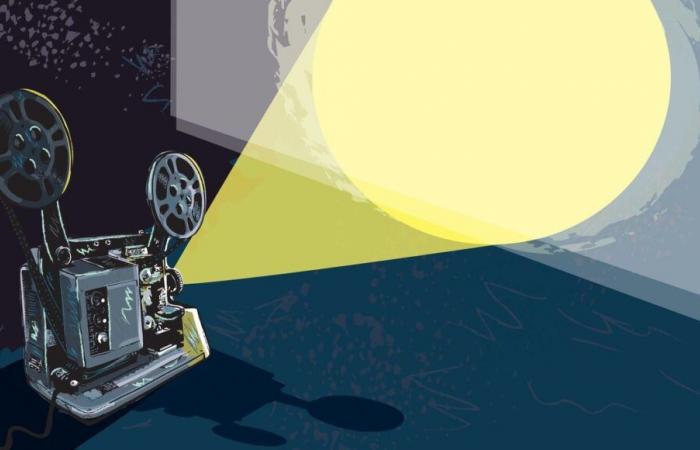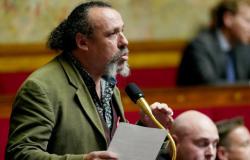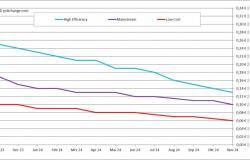“The most precious of goods” by Michel Hazanavicius
He chose animation to adapt the tale by Jean-Claude Grumberg which also bears this title, “The most precious of goods”.
In the convoy that takes him to Auschwitz, a father throws his youngest child out of the train, in the hope of saving him.
The infant is found in the snow by a poor woodcutter, that is how she is named. She takes the baby in and raises him as her own child, against her husband's wishes at first. Poor lumberjack is convinced that the Jews are heartless, before feeling the child's heart beating.
Michel Hazanavicius not only provided the production, but also the preparatory drawings of all the characters.
The voices are those of Dominique Blanc, Grégory Gadebois, Denis Podalydès and Jean–Louis Trintignant. As for the music, it is by Alexandre Desplat
To view this Youtube content, you must accept cookies Advertisement.
These cookies allow our partners to offer you personalized advertising and content based on your browsing, your profile and your interests.
Manage my choices I authorize
The course of history Listen later
Lecture listen 58 min
“Finally” by Claude Lelouch
Kad Merad is Lino, a lawyer specializing in morality cases. Lino is morally exhausted, he suffers from a neuro-degenerative disease and one day, he decides to leave everything behind, set off on the roads of France, from Mont-Saint-Michel to the Palais des Papes.
On these roads, he meets a farmer, a novelist, a breeder, and even Jesus.
Finally, I would like to point out that the character of Lino is passionate about the trumpet, which gives a musical twist to the film, with an original soundtrack by Ibrahim Maalouf.
Elsa Zylberstein, Michel Boujenah, Barbara Pravi, Françoise Fabian are also on the bill. The subtitle of the film is “Everything that happens to us is for our own good.”
To view this Youtube content, you must accept cookies Advertisement.
These cookies allow our partners to offer you personalized advertising and content based on your browsing, your profile and your interests.
Manage my choices I authorize
The 9:20 a.m. interview Listen later
Lecture listen 19 min
“The Kingdom” by Julien Colonna
We are in Corsica in the 90s. Lésia is a 15-year-old teenager who has friends, a lover, trips to the beach, it's summer.
She leaves this paradise against her will, the day a man on a motorbike takes her to an isolated villa. That's where his father is hiding. In hiding because he is a Corsican clan leader.
We discover his surroundings, his past, the death which gradually surrounds him between attacks and car bombs through the eyes of his daughter.
We never leave Lesia's point of view.
After “Borgo” by Stéphane Demoustier and “A son image” by Thierry de Peretti, this is the third film that looks at Corsican male society through a woman.
We are at the heart of the mafia but it is above all a question of the bond between a father and his daughter with what that implies of tragedies and fleeting happiness.
The film is autobiographical since the director, Julien Colonna, is himself the son of Jean-Jérôme Colonna, a legend of island banditry who died in 2006.
To view this Youtube content, you must accept cookies Advertisement.
These cookies allow our partners to offer you personalized advertising and content based on your browsing, your profile and your interests.
Manage my choices I authorize
“Gladiator II” de Ridley Scott
In the year 2000, Ridley Scott produced the first epic of the digital age with “Gladiator”, a huge success that entered the pop culture of the beginning of the century and won 5 Oscars.
A generation later, Ridley Scott, 86, gives us the rest.
Irishman Paul Mescal, from independent cinema, makes a muscular entry into Hollywood, with the lead role of Hanno, a valiant Numidian warrior, who stands up to the Roman army on the coasts of North Africa.
But the Roman general Acacius – Pedro Pascal on screen – crushes the Numidian people, kills Hanno's wife and takes him prisoner, although he still has some scruples. Hungry for revenge, Hanno then becomes a gladiator on the verge of superpowers.
The Empire is then led by two crazy brothers who aspire to subjugate other peoples. In addition to Paul Mescal and Pedro Pascal, Denzel Washington as a magnificent bastard and Connie Nielsen as a grieving mother are also on the bill.
To view this Youtube content, you must accept cookies Advertisement.
These cookies allow our partners to offer you personalized advertising and content based on your browsing, your profile and your interests.
Manage my choices I authorize
Middays of Culture Listen later
Lecture listen 27 min
“The Valley of Fools” by Xavier Beauvois
The film stars Jean-Paul Rouve, as a debt-ridden restaurateur, alcoholic, widower and father of a daughter. So, nothing goes well, until the day when Jean-Paul (that's also the character's first name) decides to participate in the Vendée Globe, but… from the bottom of his garden.
Yes, it's possible virtually, thanks to an online race simulation game. Regardless, even dry, in his boat at the bottom of his garden, Jean-Paul wants to truly experience this race alone, and he isolates himself for several months. This does not please either his father or his daughter, played by Pierre Richard and Madeleine Beauvois, herself the filmmaker's daughter. And during this time, the family mobilizes to keep the restaurant afloat.
To view this Youtube content, you must accept cookies Advertisement.
These cookies allow our partners to offer you personalized advertising and content based on your browsing, your profile and your interests.
Manage my choices I authorize
Zoom zoom zen Listen later
Lecture listen 50 min
Favorites
Xavier Leherpeur : the film “Rough Diamond” by Agathe Riedinger
Florence Colombani : the book “The films of Danielle Durieux” by Pierre Murat (Télémaque)
Christophe Bourseiller : book “Cult locations of cinema and series” (Larousse)
Murielle Joudet : the theatrical documentary “Leni Riefenstahl, light and shadows” by Andres Veiel
Rebecca Manzoni : the retrospective in 37 films “Monsters, satire and fantasy, comedy in Italian cinema”, at the Lumière Institute in Lyon and which continues until January 28; the podcast “Monica Vitti, the muse and the amusing one” (the “Toute une vie” series from France Culture) and the book “Monica Vitti, Mémoires” (Séguier)






